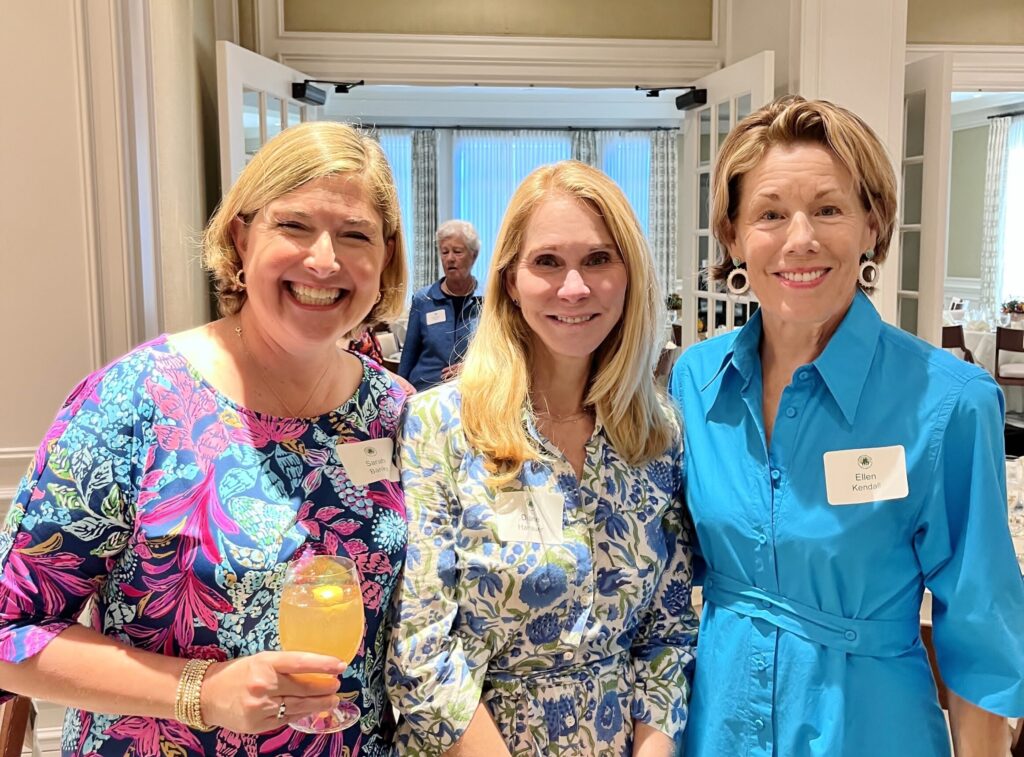Ellen Kendall, John’s Island Community Service League board president, welcomed a record number of women to the organization’s Opening Luncheon at the John’s Island Golf Club, co-chaired by Kathy Leahey and Karen Stoner.
“We know we have some new members and some people who are here to check out the Service League and see what this is all about. Truthfully, it’s a great way to meet new people, make friends, and at the same time do something good for the underserved residents of our community, Indian River County,” said Kendall.
“Last year we had another amazing year. We raised almost $1.7 million through events, through donations and through membership dues. And with that we were able to provide over $1.5 million in grants to nonprofits in the community as well as $72,500 in scholarships to our John’s Island Club employees and their dependents,” said Kendall.
Lifetime grants total more than $18 million.
“Literally, hundreds of dedicated volunteers and donors and members made all of this possible, allowing us to do so much with your contributions. And to all of you who volunteered your time last year, if you donated, if you became a member, we thank you from the bottom of our collective hearts. And hopefully you’ll be back again next year to help us do it all over again.”
Hope Woodhouse, a former JICSL president, introduced guest speaker Karissa Bolden, a licensed mental health counselor, who spoke about the dangers of social media among children, from mental health concerns to human trafficking.
Bolden is program director at the Pace Center for Girls, a middle and high school for girls with trauma and mental health issues, and she is board chair for the Human Trafficking Coalition of the Treasure Coast. She was previously clinical manager of the Cleveland Clinic Indian River Behavioral Health Center, to which JICSL granted $150,000 to establish an after-school therapy program for teens.
Bolton spoke about the unseen dangers children face with online social media including human trafficking. Although most people don’t consider it a local issue, she said Florida is ranked third in the country in human trafficking.
“If we talk about the fact that every single child that is on an online platform is at risk, then all of a sudden it’s a serious issue that we need to handle or need to face,” said Bolton.
Having attended a talk where kindergartners through fifth-graders were spoken to about human trafficking and how to stay safe online, she was shocked when almost all 300 children raised their hands when asked if they had tablets, cellphones or played games online.
“And at that moment I realized how important it was to be having these conversations,” said Bolton.
Of particular concern are online games and chatrooms, where there is no way of knowing whether the child is engaging and chatting with another child or a sex offender.
Children have been drawn into sextortion, sending nude or provocative photos that are then used as blackmail, and or have been lured from their homes to something sold to them as a better life. Many come away from social media feeling depressed or suicidal but are too embarrassed to talk to an adult.
“If I have one takeaway for all of you today, it would be to talk to any children that you know in your life, and to let them know that this is not their fault. Because really, all of our kids are exposed every single day to predators,” said Bolton, adding that boosting a child’s self-confidence is the best way to protect them.
“Help them understand that they always have a right to say no or to block people. And that talking to your parents or grandparents about what you’re seeing on social media does not mean anything negative about you. It’s saying I’m here if you want to talk about it.
Something as simple as that,” said Bolton.
Photos by Mary Schenkel

